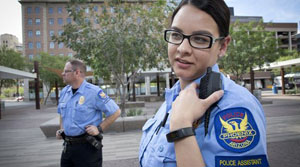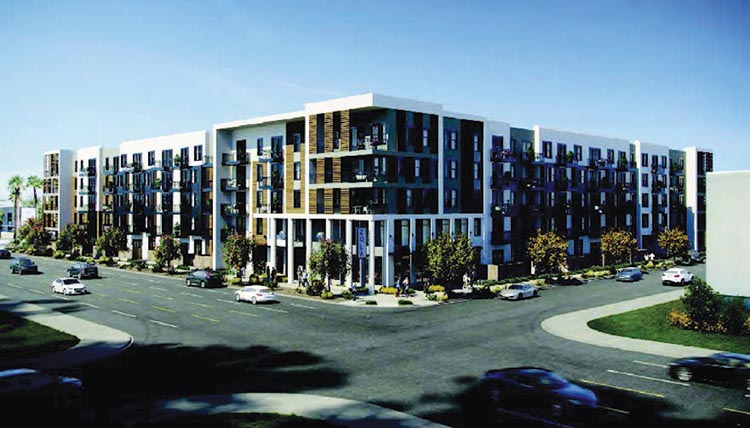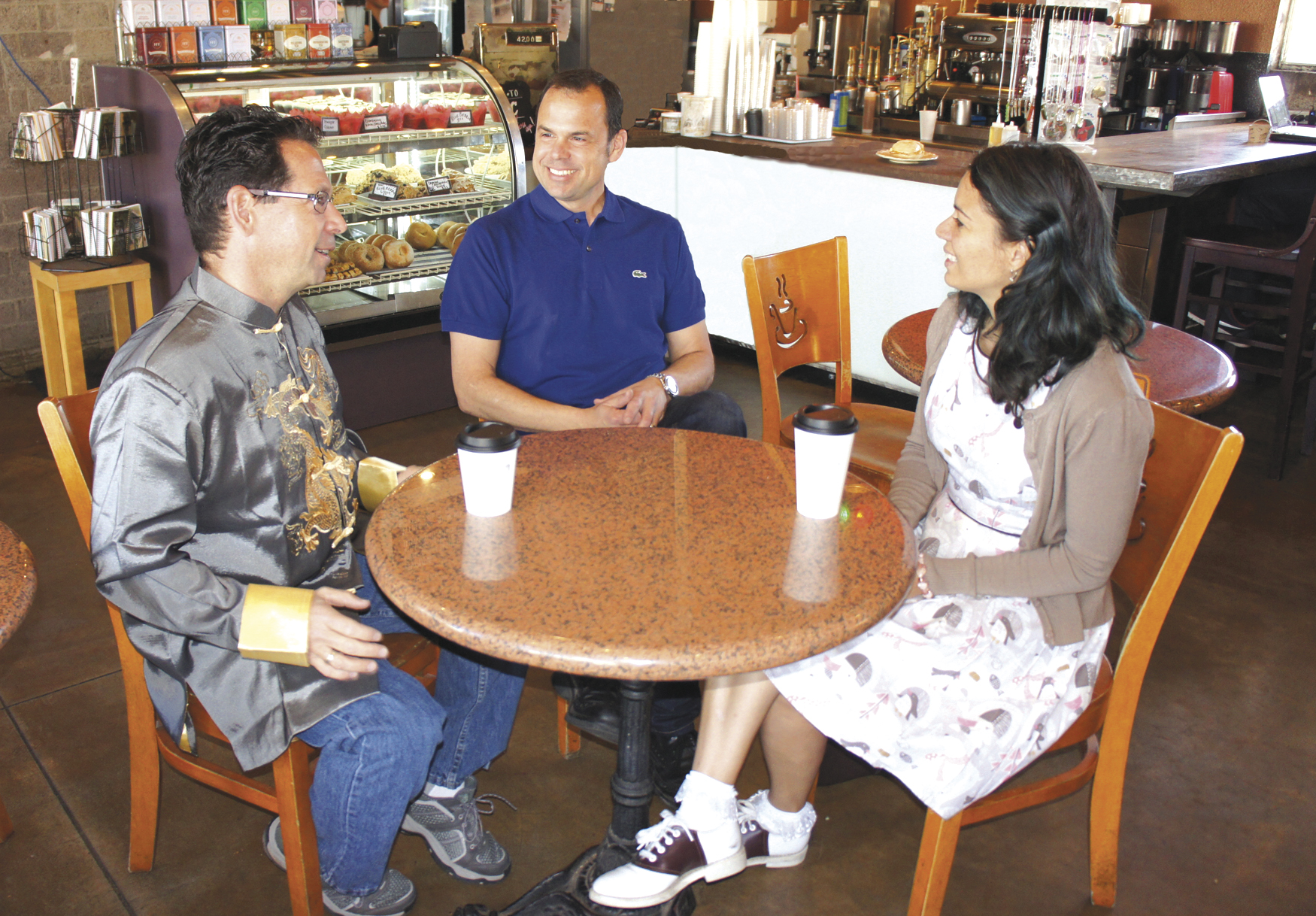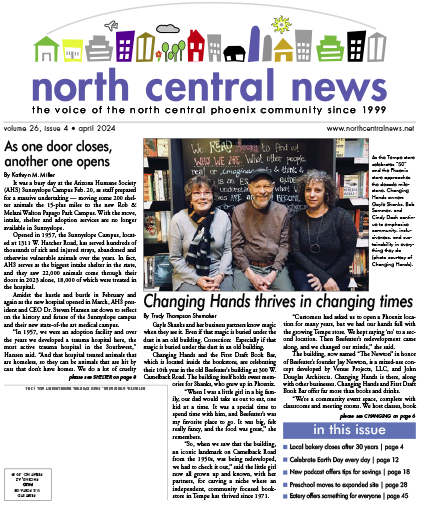The city of Phoenix is in an unexpected position of having a budgetary surplus of about $1.9 million for the next fiscal year. City Manager Ed Zuercher has proposed using some of it to hire civilian police assistants, and the rest to set aside in a rainy day fund for an expected budget shortfall for the 2018-19 fiscal year.
But residents attending several public meetings about the proposed budgets had a variety of other ideas about where that extra “rainy day” money—$691,000—should go.
The last public meeting was held April 20 at the Sunnyslope Community Center, and city officials said the 25-plus people was the largest turnout they had seen at any of the meetings. And the consensus seemed to be, spend the money the city plans to set aside in a “rainy day fund” on crime prevention on the front end, and hiring more police officers on the back end.
The crime prevention component was identified as providing more funding for children and teen services, such as teen centers, after-school programs, and libraries that provide a place for kids to go in the summer. One speaker pointed out that kids who have someplace to go and something constructive to do are less likely to get into—or cause—trouble out in the community. Several speakers requested the city extend library branch hours to seven days a week, as many of the branches—including the Acacia branch in Sunnyslope—are still closed two days a week.
The city is expected to hire close to 260 police officers in the next fiscal year, however, approximately 40 sworn officers are anticipated to retire in that same time period. While the city is getting closer to its recruitment goal of 3,125 sworn officers for the department, a few speakers—including one retired police officer—said the city would still be far below the national average of 2.5 sworn officers per 1,000 people, which for Phoenix would mean closer to 4,000 officers.
The city had stopped hiring officers in 2009 when the Great Recession began to hit hard, and only started hiring again in 2015.
Several speakers urged the city to use the budget surplus to hire more police officers and exceed the projected cap.
“While we are down from our peak level of staffing in the police department, we also are significantly down in our call for service,” said Jeff Barton, Budget and Research director. In the 2001-02 fiscal year, the police department received about 876,000 calls for service; for 2016-17, that number had dropped to 645,000.
“Over the next few years, as the population and calls for service increase, we are also fortunate to return to hiring officers,” he added.
Zuercher has proposed other part of the budget surplus—$1.3 million—be used to hire 16 civilian police assistants. The police assistants will take over some of the administrative duties, freeing up sworn officers to respond to emergency calls.
“Adding police assistants to our existing staffing resources is going to do a couple of things,” said Phoenix Police Chief Jeri Williams. “It’s going to get our first responders back on those priority calls for service faster, and increase our service delivery to our community.”
The police department has seen an increase in calls about homeless people setting up encampments, loitering in front of businesses, panhandling on street corners, and discarding drug paraphernalia like needles, particularly in the Sunnyslope area. Residents and city officials agree there has been an uptick in homeless people in this particularly community since the northwest extension of the light rail opened in March 2016.
One agency that works with the homeless population—Central Arizona Shelter Services (CASS)—requested the city use some of that budget surplus to increase CASS’s funding so that more case managers can be hired to deal with the growing influx of people coming into its shelters.
“There is no question that the homeless population is a difficult population to deal with,” said Craig Tripkin with CASS. “Some are people who have fallen on hard times, some have mental health and drug addiction issues. Many of our shelter beds are taken up by people who have jobs or have disability income, but who need help finding permanent housing. If we had more caseworkers to help them, we could free up those beds. Right now we are $200,000 short on our budget for this year.”
The city provides 13-15 percent of CASS’s annual funds. “The city of Phoenix is our most important partner, and we aren’t going to be able to address homelessness without the strong support of the city,” Tripkin added.
The proposed general fund budget notes that there are six vacant positions in the Human Services Department, and rather that filling those positions at a cost of about $500,000, the city instead proposes to create specialized outreach teams to work on the streets making contact with the homeless population and trying to match them with services, whether from the city or through partner social service and nonprofit organizations. The city hopes to create a more streamlined process, where calls for assistance from the homeless community are routed to the service or organization that can best help their particular need.
The Phoenix City Council is expected to make its initial vote on the proposed budget at its May 23 meeting. From there, the city council will adopt a tentative budget ordinance on June 7, with the final budget being adopted on June 21. Residents can submit comments and suggestions until May 8 at: budget.research@phoenix.gov.










































